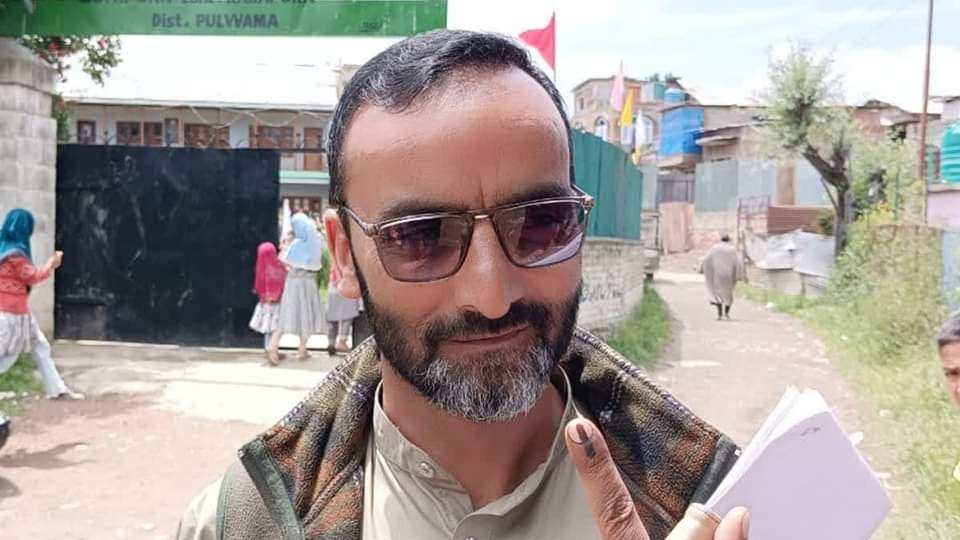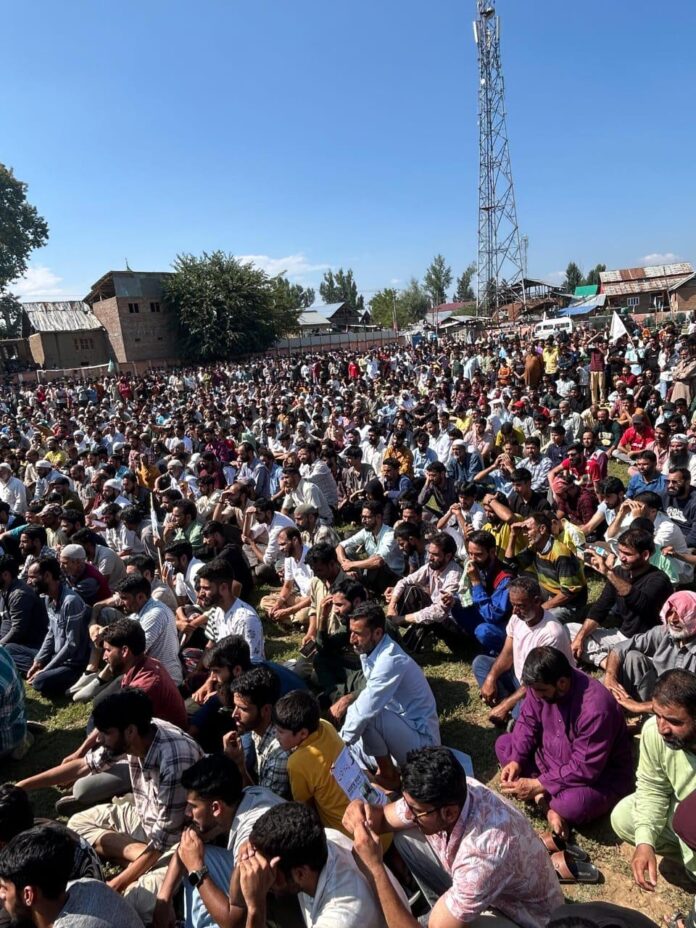Mohammad Aatif Ammad Kanth, TwoCircles.net
Srinagar: The Jamaat-e-Islami (JI) was founded in 1941 by Syed Abdul Ala Maududi. Inspired by the Muslim Brotherhood, the organisation was rooted in ideals such as Pan-Islamism, religious conservatism, Islamic revivalism, Shia–Sunni unity and anti-secularism. It aimed to spread Islamic values across the Indian subcontinent and advocate for an Islamic political system. Maududi believed that Western imperialism had corrupted contemporary political ideologies and that implementing Sharia law was essential to preserving Muslim culture. He argued that politics was inseparable from Islamic faith and viewed Islamic ideology as incompatible with non-Islamic systems like capitalism, socialism, liberalism or secularism.
After partition, the split into two factions: Jamaat-e-Islami Hind and Jamaat-e-Islami Pakistan. A third faction, Jamaat-e-Islami Kashmir (JIK), emerged in 1953 for freedom of Kashmir. It has consistently supported Kashmir’s integration with Pakistan and resisted India’s presence in the region. However, the organization has now been disbanded.
“We fought against Indian oppression and sacrificed everything for the struggle, losing thousands of our people. We faced torture, saw our homes destroyed and our women harassed. Looking back, we now feel that we made a mistake,” said a Jamaat member, speaking anonymously.
Although the JIK opposed Jammu and Kashmir’s accession to India, it interestingly also participated in several elections held under the framework of the Indian Constitution. The group justified this by aiming to use democratic means to expand its influence and eventually take control of government institutions.
In 1969, the JIK fielded independent candidates in local panchayat elections and contested the 1971 general election, hoping to win some seats, though it failed, citing widespread rigging. The Jamaat remained involved in electoral politics until the infamous 1987 elections, where it participated as part of the Muslim United Front, advocating for rule by the Quran and Sunnah.
Vikas Amin, a campaign manager for the JIK, stated, “We have always been a democratic organisation. We firmly believed in the importance of democracy and the people’s choice, both in the state and across the country. If we did not hold this belief, we would not have participated in elections up until 1987.”
The Jamaat-e-Islami severed ties with electoral politics after the 1987 Assembly elections, which were allegedly rigged. Inside counting centres, candidates from the Muslim United Front were allegedly initially declared winners, only to be later announced as losers on radio and television. Many victorious candidates were arrested and humiliated in police stations. The purported rigging faced strong criticism from civil servants, political analysts and activists, leading the Jamaat to lose faith in the electoral process, ultimately declaring electoral politics as haraam (un-Islamic). However, both the Pakistan and India factions of the Jamaat distanced themselves from this ruling made by Jamaat-e-Islami Kashmir.
Vikas Amin stated, “We would never have distanced ourselves from electoral politics if the 1987 elections hadn’t been rigged. It was the Indian state and the National Conference that pushed us away because they didn’t want us in power. However, things have changed. With recent elections being more transparent, like the case of a jailed candidate winning a parliamentary seat in May without his mandate being stolen, we believe it’s the right time to participate in elections again.”
Relations with PDP
Although the Jamaat-e-Islami Kashmir stopped contesting elections after 1987 and was banned in 1990, it continued to wield influence in the socio-political arena through its Pakistan-backed militant wing, Hizbul Mujahideen, and its educational trust, Falah-e-Alam. However, the group faced severe persecution, with hundreds of members killed and properties seized. When Farooq Abdullah returned to power in 1996, the situation worsened for the Jamaat, as they claimed that Abdullah used brutal tactics, including the state-backed counter-insurgency militia, Ikhwan-ul-Muslimeen, to suppress them further.
“The 1990s were a nightmare for us in the Jamaat,” said Vikas, adding, “We faced brutal force, with over 500 of our Rukuns (cadre heads) killed. State institutions were weaponised against us, our properties were seized, and we were forced into hiding.”
This prompted the JIK to support Mufti Mohammad Sayeed in forming his own political party, which was named the People’s Democratic Party (PDP) and would later come to power in 2002. The party adopted the symbol of the inkpot and pen, the same symbol previously used by the Muslim United Front in the 1987 elections. After Mufti Sayeed came to power, he lifted the ban on the Jamaat, restoring their assets. The JIK then resumed its social initiatives, such as providing education for the poor through its schools, offering medical aid and engaging in relief work.
The organisation reactivated its cadre after 2002 and operated openly, though it continued to oppose elections and called for boycotts. However, it maintained a soft spot for the PDP.
Vikas explained, “We have always supported parties in the past that had a sympathetic approach toward Kashmiris and were relatively better than others.”
The organisation was again banned in 2019, which alleged “unlawful associations” and activities “prejudicial to internal security and public order”. The ban was condemned by former Chief Minister Mehbooba Mufti, who termed it as “high handedness” of the government.

Back to Electoral Politics
After the 2019 ban, the JIK leaders were arrested, and their assets were frozen once again. The crackdown intensified, with many Jamaat-run schools shutdown, employees with any ties to the outfit terminated and passports of associates suspended. Hundreds of homes were raided and bank accounts were frozen. In May 2024, people were stunned when Jamaat leaders appeared on social media, posing outside polling booths and advocating for democracy and electoral politics.
This sent shockwaves through the Valley, as the same organisation that once urged people to stay away from elections was now promoting participation. Many alleged that the Jamaat had struck a deal with Delhi, wherein the ban on the organisation would be lifted in exchange for the group’s entry into mainstream politics.
Nadeem Bhat (name changed) shared, “The Jamaat leaders made us boycott elections for years, and in many ways, they were right. They led us in resisting forces, but that struggle resulted in thousands of deaths and countless people being tortured. In the end, however, when they faced their own crackdown, they struck a deal with the BJP. Now, no one will trust them anymore.”
Despite the anger directed at the organisation for keeping people away from the polls for decades, many still support its return to politics. The group is drawing large crowds, especially in South Kashmir, and is expected to present a formidable challenge to prominent figures like Yousuf Tarigami and others.


